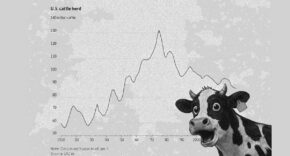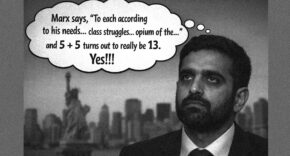The job market for the Class of 2026 is shaping up to be the weakest in half a decade, according to new reporting from The Wall Street Journal and several education and employment sources. More than half of 183 employers surveyed by the National Association of Colleges and Employers say they expect next spring’s job market for new graduates to be poor or fair. This is the most pessimistic outlook since the first year of the pandemic, and seniors across the country are already feeling the pressure.
What the Data Shows
The data behind the gloomy forecasts paints a difficult picture.
Employer optimism about hiring continues to fall. Only a small share call the Class of 2026 job market good or very good, and far fewer call it excellent. Employers expect hiring to grow just 1.6 percent, down sharply from plans for the Class of 2025.
Meanwhile, new graduates are running into tougher competition. The unemployment rate for recent grads reached 4.8 percent in June, the highest June level for recent graduates in four years. Job postings on Handshake fell more than 16 percent year over year, and each opening now attracts 26 percent more applications. More than 60 percent of the Class of 2026 say they are pessimistic about their career prospects.
Fields like healthcare, education and manufacturing still show some growth, but three categories of employers dominate the landscape. Some companies have paused hiring, some are laying off workers in the name of efficiency, and others are expanding only modestly. It adds up to a weaker environment for anyone trying to land their first job.
A cooling economy has pushed companies such as Amazon, UPS and Verizon to cut tens of thousands of jobs. Many employers now prefer candidates with experience instead of fresh graduates. Layoffs have created a wave of junior workers competing directly with new seniors for the same roles.
Artificial intelligence is also reshaping early-career hiring. Executives are increasingly open about replacing tasks once handled by entry-level workers. One student, Annika Swenson of the University of Iowa, said it is possible that within a year “there just wouldn’t be a person needed to do that job anymore.”
Companies are hiring more cautiously, scaling back internship pipelines and hesitating to commit to roles that begin next summer. As one recruiter put it, hiring is at a standstill because companies “don’t know where to invest” during a time of tariffs, uncertainty and rapid AI changes.
How Students Are Feeling
Students are discouraged, anxious and exhausted.
Many are applying to dozens or even hundreds of positions. But mass applications often backfire when cover letters and resumes look generic. Students report being ignored by employers or receiving no responses at all. Seniors at Virginia Tech told reporters they worry companies prefer experienced applicants, leaving new graduates with fewer paths forward.
Still, some express cautious optimism. Meteorology student Hunter Dunn said he is trying to stay excited about adapting to new conditions, even though the circumstances are more difficult than he imagined when he started his degree.
Others feel the strain more sharply. Former internship program director Giavanna Vega described the environment as intensely competitive, with experienced workers now willing to take entry-level positions. After facing many rejections herself, she shifted focus to her small business while continuing to apply.
Where the Job Market Is Weakest
Weakness is widespread, but certain areas stand out.
Entry-level corporate roles are especially hard hit as companies shift routine tasks to AI and concentrate on experienced hires. Tech has seen major layoffs, reducing both internships and full-time roles. Logistics and retail giants are downsizing. Even fields like business operations and marketing are slowing, which increases competition for a smaller number of positions.
Students in specialized fields with fewer openings, such as meteorology or marine animal work, face even steeper competition as internships disappear and organizations prefer candidates already trained.
Competition is rising. Anxiety is increasing. Many seniors are broadening their search well beyond their majors. Some are looking to smaller firms, regional employers or industries they had not previously considered.
Students will need stronger resumes, better interview preparation and more targeted applications to stand out. Many will need to develop new skills in AI, data, technology platforms and industry certifications to remain competitive.
Experts say that networking, adaptability and clear communication will matter more than ever. As Christine Cruzvergara of Handshake explains, employers want students who can explain not just what they can do but how and why they do it.
Students say they are stressed and discouraged. Employers say they are cautious and uncertain about the economy. Recruiters report being overwhelmed by massive numbers of applications. Career experts say recent graduates must be more strategic, faster and more tailored in their approach.
Still, many emphasize that success is possible. The most prepared and proactive students tend to win opportunities, even in tough years.
FAM Editor: This may be a tough market, but there have been tougher ones. We still have the lingering effects of Covid, and AI is moving in. But a motivated grad will find a job.





